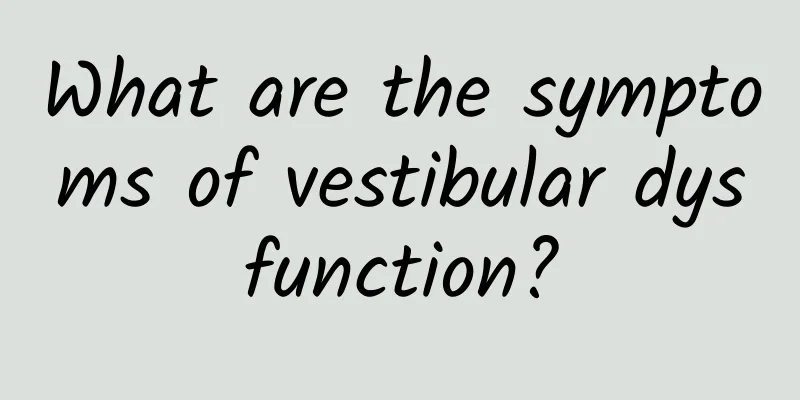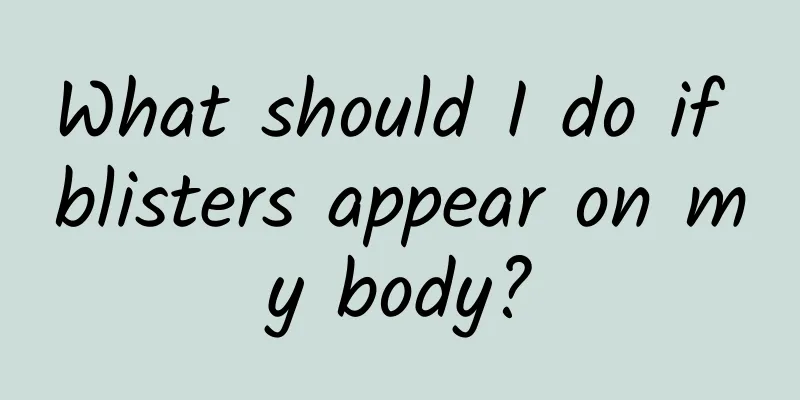What are the symptoms of vestibular dysfunction?

|
Vestibular nerve dysfunction cannot be ignored. It can easily cause patients to experience rotational dizziness, or symptoms such as sweating, frequent yawning, rapid heart rate and high blood pressure, and sometimes tinnitus and deafness. 1. Clinical manifestations 1. Motion illusion vertigo Rotational vertigo, linear vertigo or displacement vertigo: In acute attacks, sudden vertigo is the main symptom, which is true vertigo. The patient feels that external objects are moving or he or she is moving, accompanied by nausea, vomiting, and diarrhea. Some patients experience chest tightness, sweating, yawning, increased heart rate, and high blood pressure. 2.Imbalance and imbalance It manifests as posture and gait balance disorders. Patients may lean to one side or feel unstable when standing or walking, and may stagger or feel drunk when walking. 3. Dizziness and lightheadedness Patients are often unable to clearly express their discomfort, such as dizziness, heaviness, numbness in the head, a feeling of emptiness, a tightness in the head, a heavy and oppressive feeling in the head, black spots in front of the eyes, etc. It may also be accompanied by symptoms of the primary disease, such as deafness, tinnitus, etc. II. Treatment 1. During the acute attack period, you should avoid strenuous activities, rest in bed, lie in a comfortable position, close your eyes, keep your head still, and avoid sound and light stimulation. Soothe their mood, reduce their fear and anxiety, and eliminate the cause of the disease. Vestibular nerve sedatives such as diazepam; anticholine preparations such as scopolamine and anisodine; vestibular nerve inhibitors and anticholine drugs such as dimenhydrinate, diphenhydramine, promethazine, etc.; vasodilators such as betahistine, flunarizine, sodium bicarbonate, etc. can also be used. If drug treatment is ineffective, surgery to destroy the labyrinth or cut the vestibular nerve may be considered. 2. For those with low vestibular function, Cawthorne-Cooksey vestibular rehabilitation training can be performed to promote vestibular compensation. 3. For those whose vestibular function is too sensitive, habituation therapy can be tried, and the reactivity to the same stimulus will gradually decrease or weaken. |
<<: Can cupping help you lose weight?
>>: What is the reason for insufficient Qi and blood and deficiency of both Yin and Yang?
Recommend
Can I drink honey water for pharyngitis?
For people suffering from pharyngitis, they must ...
Immunoglobulin for urticaria
Urticaria is a very common skin disease. It usual...
Complications after gastrostomy
Some patients with esophageal cancer or brain dea...
Newborns poop more than 10 times a day
Since newborns mainly rely on breast milk or form...
How to eliminate hiccups
Eating too fast can cause burping. Hiccups are ca...
How to detect cerebral palsy in children
When a child has cerebral palsy, or when parents ...
What medicine is suitable for fungal infection
Fungal infections often occur in our daily lives ...
How to tell if you have mites on your face
Mites are a common parasite that feed on human da...
What should I do if my lips are sore?
The ulcer inside the lips is actually what we cal...
How to cure scabies quickly
After getting a fever, we can always find pink pi...
How to prevent recurrence after cystectomy
Chocolate cyst surgery is also known as chocolate...
Why does a newborn spit up yellow milk?
Normally, the milk spit out by a baby is milky wh...
Cryotherapy for rhinitis
The treatment process of rhinitis is very complic...
What causes gum recession?
If you suffer from periodontitis, or if you have ...
What is uterine itching?
Women's menstrual period is very special, so ...









